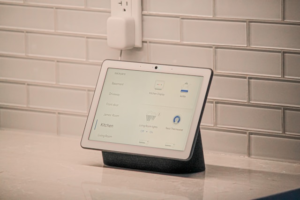When your family member gets a dementia diagnosis, you might feel overwhelmed. However, caring for someone with dementia at home can be deeply rewarding. Many families choose this path because it keeps their loved ones in familiar surroundings.
Looking after someone with dementia at home requires planning and patience. Yet, with the right knowledge and support, you can create a safe and loving environment. This guide will help you understand what dementia care involves and how to protect your own health, too.
Understanding Dementia and Its Daily Impact
First, dementia affects much more than memory alone. Additionally, it changes how people think, speak, and handle routine tasks. Therefore, understanding these changes helps families prepare better for the road ahead.
For example, your loved one may forget familiar faces or become disoriented about time. Additionally, simple tasks like getting dressed or eating meals can become overwhelming. These changes occur gradually, yet they have a significant impact on daily life.
Meanwhile, emotional changes are equally important to recognise. Your family member might feel frustrated when words don’t come easily. Similarly, they may become anxious in new situations or crowded spaces.
How to Promote Dementia Care at Home Through Safe Environment Design
Creating a safe living space is crucial for successful home care. Nevertheless, small changes can make huge differences in preventing accidents and reducing confusion.
Essential Home Safety Modifications
Start by removing tripping hazards like loose rugs or electrical cords. Next, install bright lighting throughout the house, especially in hallways and bathrooms. Good lighting helps reduce confusion and prevents falls during nighttime movements.
Additionally, secure cabinets that hold medications, cleaning supplies, or sharp objects. It is also advisable to install safety locks on exterior doors to prevent wandering. Many families find motion sensors useful for monitoring movement without being intrusive.
Kitchen and Bathroom Safety
Ensuring kitchen safety is crucial when caring for someone with dementia at home. Remove stove knobs when not in use and disconnect garbage disposals. Additionally, store knives and sharp tools in locked drawers.

Bathroom modifications include installing grab bars near toilets and showers. Additionally, consider raised toilet seats and non-slip mats. These simple changes significantly reduce the risk of injury while helping maintain independence.

A slightly higher-cost solution we can offer is to install a walking shower. This is greatly beneficial for patients with motor (balance) issues, as it allows for easy placement of a shower stool or wheelchair underneath.
Mastering Communication: Caring for Dementia at Home
Communication changes as dementia progresses, yet connection remains possible with the right approaches. Therefore, learning new ways to interact helps maintain relationships while reducing frustration.
Speaking Techniques That Work
Speak slowly and clearly, using simple words and short sentences. Additionally, make eye contact, always introduce yourself (E.g, “Hi Dad, it’s Mark or Jean” ) and use a calm, reassuring tone. Allow your loved one time to process the information before expecting a response. Simply, please do not rush with the patients.
Additionally, use visual cues and gestures to support your words. Pointing or demonstrating actions often works better than verbal instructions alone. When they struggle to find words, be patient and avoid finishing their sentences.
Handling Difficult Conversations
Sometimes, your loved one may say things that don’t make sense or seem upsetting. However, validate their feelings rather than correcting facts. If they’re worried about something imaginary, acknowledge their emotions instead of arguing about reality.
For example, if they want to visit a deceased parent, you might say, “Tell me about your mom.” This approach respects their feelings while avoiding painful corrections.
How to Promote Dementia Care at Home with Meaningful Daily Activities
Structured activities provide purpose and enjoyment for people with dementia. Furthermore, they help maintain cognitive abilities and physical health while creating positive experiences.
Morning and Afternoon Activities
Plan activities based on your loved one’s interests and abilities. For example, someone who enjoys cooking might assist in preparing simple meals. Likewise, former gardeners may enjoy tending to indoor plants or arranging flowers.
Additionally, music often brings joy and triggers positive memories. Listen to songs from their youth or encourage singing along to familiar tunes. Art activities like colouring or simple crafts can also provide satisfaction and accomplishment.
Physical Exercise and Movement
Regular movement is essential for physical and mental health. However, adjust activities to match current abilities. Short walks, gentle stretching, or chair exercises work well for most people with dementia.
Moreover, dancing to favourite music combines physical activity with enjoyment. Even simple movements like clapping or swaying provide benefits while creating happy moments together.
Challenging Behaviours: Caring for Dementia at Home
Behavioural changes are common in dementia, yet they can be managed with patience and understanding. Therefore, identifying triggers helps prevent difficult situations before they escalate.
Understanding Sundowning
Many people with dementia experience increased confusion in the evening, called sundowning. To address this, maintain good lighting as daylight fades. Also, avoid overstimulation during late afternoon hours.
Furthermore, create calming evening routines with soft music or familiar scents. Lavender or vanilla often has soothing effects that help reduce agitation and promote relaxation.
Dealing with Wandering and Agitation
Wandering concerns many families learning how to care for and look after someone with dementia at home. Install door alarms and consider GPS tracking devices for safety. Additionally, create secure outdoor spaces where walking is safe and enjoyable.
When agitation occurs, stay calm and avoid arguing or reasoning. Instead, try redirecting attention to pleasant activities or topics. Remember that these behaviours often stem from fear or frustration, not defiance.
Meal Planning Tips for Caring for Dementia Patients
Proper nutrition becomes challenging as dementia progresses, yet good meal planning ensures adequate nutrition while maintaining enjoyment. Therefore, focus on familiar foods and simple choices.
Creating Positive Mealtime Experiences
Plan meals around familiar favourites from earlier in life. Cultural dishes or childhood foods often encourage better eating habits. Moreover, make mealtimes social occasions by eating together when possible.

Additionally, simplify food choices to avoid overwhelming decisions. Instead of asking what they want to eat, offer two specific options. This approach reduces anxiety while providing some control over their environment.
Adapting Food Textures and Presentation
As swallowing becomes difficult, consider texture modifications like soft foods or smoothies. Furthermore, use familiar dishes and utensils to make eating more comfortable and natural.
Also, finger foods work well for people who struggle with utensils. Cut sandwiches into small pieces or offer fruit slices that are easy to handle independently.
Ways to Care for Yourself While Caring for Dementia
Caring for someone with dementia affects the entire family’s health and well-being. However, supporting all family members is essential for successful long-term care at home.
Preventing Caregiver Burnout
Caregiver burnout is a real risk when learning how to promote dementia care at home. Therefore, distribute caregiving responsibilities among family members based on their abilities and schedules.
Furthermore, arrange regular respite care to give primary caregivers breaks. Even a few hours away helps maintain physical and mental health while preventing exhaustion and resentment.
Building Support Networks
Join support groups for families dealing with dementia. These connections provide emotional support and practical advice from people who understand your challenges. Many groups meet in person or online for convenience.
Additionally, don’t ignore your own health needs. Regular exercise, adequate sleep, and social connections help you provide better care while maintaining your well-being and happiness.
When Professional Help Becomes Necessary while Looking After Someone With Dementia at Home?
While many families successfully provide dementia care at home, knowing when to seek professional help protects everyone’s safety and well-being. Therefore, regular assessment of care needs is important.
Signs That Additional Support Is Needed
Contact healthcare providers if you notice sudden changes in behaviour, mobility, or eating habits. These changes might indicate underlying health issues requiring medical attention and treatment.
Moreover, consider professional in-home care services when daily tasks become too challenging to manage alone. Trained caregivers provide specialised support while allowing your loved one to remain in familiar surroundings.
Planning for Future Care Needs
Dementia progresses differently for each person, yet planning for changing needs helps families prepare appropriately. Have honest conversations about preferences while your loved one can still participate in decisions.
Additionally, explore financial resources including insurance coverage, government programs, and community services. Early planning helps families access needed support when circumstances change.
Technology Solutions Tips for Caring for Dementia at Home
Modern technology offers valuable support for families learning how to promote dementia care at home. These tools improve safety, enhance communication, and provide peace of mind for everyone involved.

Safety and Monitoring Technologies
GPS tracking devices help locate wandering patients quickly while looking like regular watches. Family members can monitor locations through smartphone apps for immediate alerts and responses. E.g.. Apple Watch 3rd generation onwards.
Furthermore, smart home sensors detect unusual activity patterns and alert caregivers to potential problems. For example, systems notify families if someone doesn’t get out of bed by a certain time.
Communication and Entertainment Tools
Voice-activated assistants provide reminders, play familiar music, and answer simple questions. They’re particularly helpful for people with early-stage dementia who can still interact with technology independently.

Additionally, video calling technology keeps families connected when they can’t be physically present. Regular video calls with distant relatives provide emotional support and help maintain important relationships.
Creating Meaningful Moments Together while Looking after Someone with Dementia at Home
Despite the challenges of dementia, opportunities for connection and joy remain throughout the journey. Therefore, focus on creating positive experiences rather than dwelling on losses and limitations.

Look through old photo albums together and encourage storytelling about happy memories. Even if details aren’t accurate, the emotions and connections are real and valuable for both of you.
Furthermore, maintain familiar traditions and celebrations that bring comfort and happiness. Birthday parties, holiday meals, or weekly movie nights provide structure and anticipation while honouring your relationship’s history.
Dementia Care at Home – What are the disadvantages of caring for a dementia patient at home?
The Hidden Challenges of Dementia Care at Home
While dementia care at home offers many benefits, like familiar surroundings and family closeness, it also comes with significant challenges that families must carefully consider. Many caregivers enter this journey with good intentions but find themselves unprepared for the physical, emotional, and financial demands that come with providing round-the-clock care.

Understanding these potential disadvantages helps families make informed decisions about the best care approach for their loved one and ensures they have realistic expectations about what home care truly involves.
Physical and Emotional Challenges
Caregiver Burnout – Providing 24/7 care is physically and emotionally exhausting. Family caregivers often experience depression, anxiety, and health problems from the constant stress and lack of sleep.
Limited Medical Expertise – Family members may not recognise medical emergencies or know how to handle complex health issues that arise with dementia progression.
Social Isolation – Both the patient and caregiver can become isolated from friends and community activities, leading to loneliness and reduced quality of life.
Safety and Security Concerns
Wandering Risks – Even with safety measures, patients may still find ways to leave the home unsupervised, putting them at risk of getting lost or injured.
Medication Errors – Managing multiple medications at home increases the risk of missed doses, wrong dosages, or dangerous drug interactions.
Fall Prevention Challenges – Despite home modifications, the familiar environment may give patients false confidence, leading to more falls and injuries.
Financial and Practical Limitations
High Costs – Home modifications, assistive technologies, respite care, and medical supplies can be very costly and may not be covered by insurance.
Career Impact – Primary caregivers often must reduce work hours or leave their jobs entirely, creating financial strain and lost career opportunities.
Limited Professional Support – Access to specialised dementia care professionals, therapists, and medical equipment may be restricted compared to professional care facilities.
Family Dynamics and Relationships
Relationship Strain – The stress of caregiving can damage relationships between spouses, siblings, and other family members, especially when care responsibilities aren’t shared equally.
Role Reversal Difficulty – Adult children may struggle with becoming the caregiver for their parent, creating emotional distress and identity conflicts.
Impact on Other Family Members – Children in the household may feel neglected or traumatised by witnessing their loved one’s decline.
Quality of Care Limitations
Inconsistent Care – Unlike professional facilities with trained staff working in shifts, family caregivers may provide inconsistent care when they’re tired, stressed, or overwhelmed.
Lack of Specialised Activities – Professional facilities offer structured activities and social interaction designed specifically for dementia patients, which may be difficult to replicate at home.
Emergency Response Delays – In medical emergencies, response time may be slower at home compared to facilities with medical staff on-site.
Progressive Care Challenges
Increasing Care Needs – As dementia progresses, patients require more intensive care that may exceed what families can safely provide at home.
Behavioural Management – Aggressive behaviour, severe agitation, or other challenging symptoms may become too difficult for family members to handle safely.
End-Stage Care – Advanced dementia often requires specialised medical care and equipment that’s more readily available in professional settings.
Dementia care at home is effective for many families, particularly in the early stages. However, these disadvantages emphasise the importance of regularly reassessing care arrangements and considering professional alternatives when home care becomes inadequate or unsafe.
Conclusion
Caring for someone with dementia at home is challenging and rewarding. With proper preparation, family support, and the right resources, families can create a loving environment that honours their loved one’s dignity while ensuring their safety and comfort.
Remember that every person with dementia is unique, and care plans should be tailored to individual needs and preferences. Stay flexible, be patient with yourself and your loved one, and don’t hesitate to seek help when needed.
Most importantly, focus on creating meaningful moments together. While dementia changes many things, it doesn’t change the love you share. By providing compassionate care at home, you’re giving your loved one the gift of familiarity, comfort, and connection during a difficult time.
“Get trusted advice on dementia care at home and practical tips for caring for someone with dementia at home—all in one place.”

